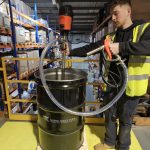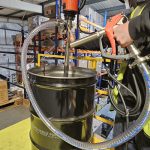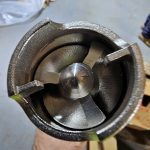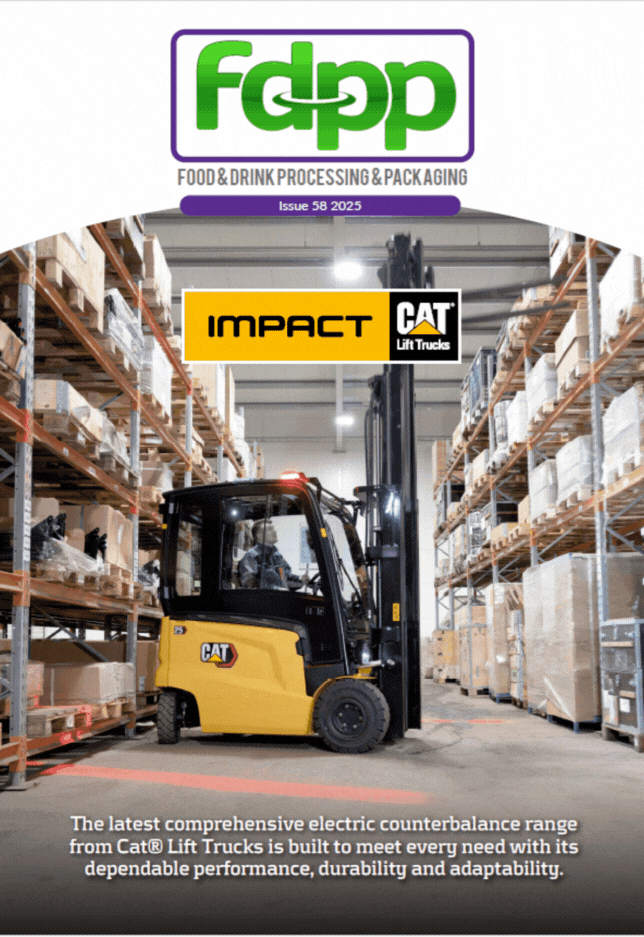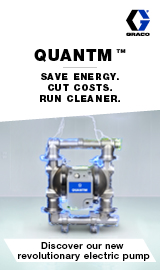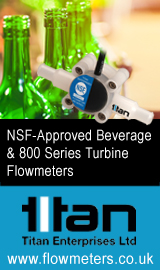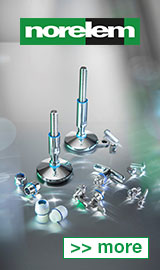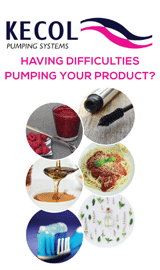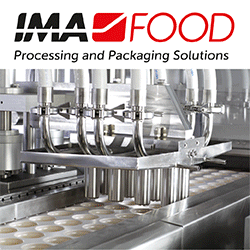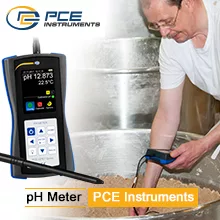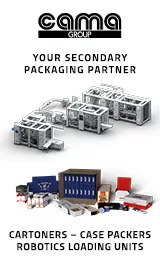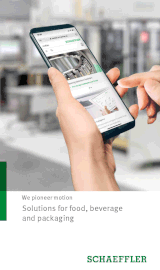A new Sanitary Barrel Pump Kit for decanting bulk quantities of vinegar from containers – Case Study
In today’s case study, we’re drilling down into a project we worked on for an overseas wine manufacturer. As well as making a range of wines, the company turned some of its product into vinegar to create another regular income stream.
They contacted North Ridge Pumps looking for a proven and effective way to decant intermediate bulk containers (IBC) containing vinegar with an acidic content up to 8%. The company wanted an all-in-one pump kit designed to quickly transfer the vinegar from the container.
How is vinegar made from wine?
Turning good wine into great vinegar is surprisingly easy. In fact, you may have accidentally made wine vinegar in the past by leaving out an opened bottle of wine too long.
Wine can be left in a warm place for two weeks allowing the natural oxidation process to undertake the rest. Too much alcohol will hamper the growth of the bacteria that turn the wine into vinegar. Too little alcohol and the vinegar won’t keep very well.
To make large quantities of wine vinegar, a ‘mother’ vinegar is needed. This is fermenting bacteria culture which turns alcohol into acetic acid working in combination with oxygen. It can be bought as ‘live’ or ‘mother’ vinegar, or simply as an unpasteurised vinegar. Mother vinegar can also be made by combining wine and vinegar and leaving it to ferment.
Transferring vinegar in bulk
As part of this client’s production process, bulk deliveries of vinegar were being made and had to be transferred into drums on site. To do this, a pump was needed.
Barrel or drum pumps are usually chosen for applications like this. They provide an easy and safe way to transfer or dispense virtually any fluid or chemical from containers like barrels, tanks, IBCs and drums. In addition, many different models, lengths, tubes and accessories are available to meet the demands of a variety of different sectors.
This particular application was just right for a sanitary barrel pump, also known as a drum pump. But which one to specify?
Here are 7 factors we look at when specifying a barrel pump for a client:
- Cost of liquid
Barrel pumps don’t usually decant all of the contents from a container, and sometimes leave as much as 5% of the fluid at the bottom.
If this fluid is expensive, this level of waste can add up to tens of thousands of pounds worth of lost product and profit every year. On the flip side, significant savings can be made by taking out all of the contents of every container.
That’s why special types of pumps have been developed to totally remove these contents, and one specifically designed to do this is the North Ridge Pumps 99.98% Barrel Emptying Kit.
- Type of fluid
Obviously, fluids come in a wide variety of viscosities, from some similar to water to others which have the consistency of a paste or sludge. The properties of the liquid also need to be taken into account such as whether it is rheopectic or thixotropic.
Rheopecty is the characteristic of some fluids to become more viscous if they undergo shearing forces. The longer these forces are operating, the higher the viscosity. In short, rheopectic fluids, such as some lubricants, thicken or solidify when agitated or shaken.
The opposite and much more common type of behaviour is called thixotropy. Here, some fluids that are thick or viscous when static will begin to flow when they’re agitated, shaken, shear-stressed or just put under stress. It then takes a while for them to return to their original viscous state.
- Power source
Sanitary drum pumps can use a range of different power sources. They can use electricity working on differing voltages such as 110V/230V or 3 phase, air power or even be hand-operated.
Something else to factor into the decision is whether the unit is to be installed in a safe area away from flammable liquids or vapours. Or perhaps it’s to go into an ATEX zone which would require a full ATEX Pump kit. This can play a major part in deciding the pump and motor type we specify.
- Mechanical seal or seal-less
Some liquids have the property of crystallising when they come into contact with air. In this case, mechanically-sealed pumps are essential to ensure that air doesn’t get into the pump. In addition, certain chemicals like solvents evaporate, so the unit needs to be sealed to stop the contents getting out into the atmosphere.
Seal-less sanitary drum pumps are best for certain liquids which are aggressive and where the exact breakdown of chemical composition is unknown, making the right choice of seal more difficult.
- Size of container
Fluids are transported in a multitude of containers ranging from small tote boxes of 25L and bigger 205L drums, all the way up to Intermediate Bulk Containers (IBC) and bespoke tanks. The size of the tank and the properties of the fluid it’s transporting will dictate the type of pump specified, and the method used to extract its contents.
- Hygiene standards and cleanability
For this specific project, the client would need a sanitary drum pump which was completely hygienic. This meant that a stainless steel pump could certainly have been an option.
Alternatively, a third party-accredited hygienic pump could be a solution. This would need certification by an independent organisation such as 3-A, FDA or EHEDG as meeting food hygiene standards. These state that pumps used for transferring food or fluids must not affect the taste or composition of the material being transferred, must be fully traceable and inert.
- Bulk transfer or metered batching
Barrel or drum pumps can be configured to carry out bulk transfer of fluids, or more precise metered batching. They incorporate a flowmeter hose and can incorporate a batching facility with a range of pre-sets enabling batches to be decanted at the touch of a button.
With transfer accuracy levels of 99%, these units take away a great deal of time-consuming weighing and measuring of liquids, and help boost productivity and profitability.
In addition, barrel pumps can be set up by the operating company to provide different levels of access for users and managers with varying levels of access.
Our specification for this client
The overseas wine manufacturer told us they wanted a sanitary pump kit designed to quickly decant vinegar from intermediate bulk containers (IBC) into smaller drums.
Here at North Ridge Pumps, we’re not tied to a single pump technology. We use our expertise to offer a tailor-made solution, not something taken off the shelf. So we always choose the most cost-effective pump for any specific client and project.
For this application, we specified a sanitary barrel pump manufactured in highly polished and hygienic 316 stainless steel. It’s fully configurable and comes with a variety of options to give the client greater production flexibility.
Due to the low viscosity of vinegar, we specified an impeller pump type which is specially designed for liquids with low viscosities which flow easily and are not affected by shear forces.
All connections are tri-clamp ensuring that they are fully sanitisable for maximum levels of food hygiene. We supplied the pump with 2m of food grade hose and a dispensing nozzle for full control of every fluid transfer.
Looking for a quick and easy way to empty containers without having to use manual handling? We can specify a bespoke solution for your business. Visit www.northridgepumps.com or call 01773 302 660 to see how we can help.

